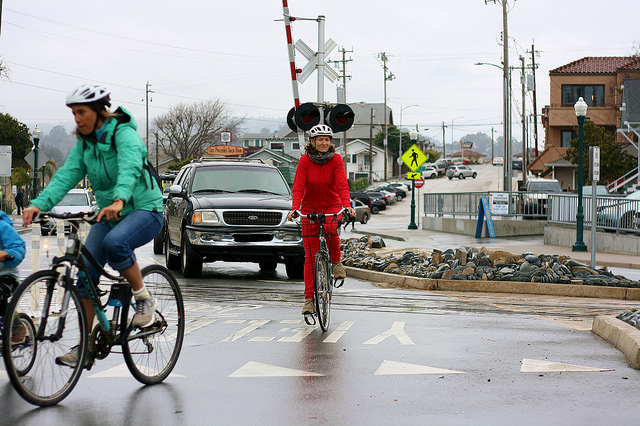Sponsored post: Spin and Better Block Foundation are calling on designers, urbanists and anyone who cares about safe and livable streets, to submit ideas for a new generation of multimodal parklets. Winning designs will get built and installed in Denver in September. Let’s take back our streets from cars, one space at a time. Apply now: https://www.spin.pm/streets
Oregon cyclists will be able to treat stop signs and flashing red traffic lights as "Yield" signs under a bill that narrowly passed this week in the legislature after 15 years of grassroots advocacy.
The bill, if signed by Gov. Kate Brown, would make Oregon the fourth state to legalize a version of the so-called "Idaho Stop," named after the tuber-famous state that first legalized the practice. Delaware lawmakers passed a similar law in 2017 and Arkansas did the same earlier this year.
Oregon State Rep. Barbara Smith Warner led the charge to get the 31-28 vote for passage, according to Jonathan Maus at Bike Portland. Smith explained that allowing cyclists to yield rather than stop "was about 'usability' and that, unlike driving a vehicle, bicycle riders constantly need to start and stop under their own power."
The Idaho Stop has been shown to provide safety benefits as well. The year after it passed 1982 in its namesake state, cycling injuries dropped 14 percent. Overall, studies have shown, cities in Idaho are about 30 percent safer for cyclists than other cities. That law allows cyclists to treat red lights like stop signs as well.
For decades Idaho stood alone with this well-known and successful policy. Now, in the last few years, it has finally begun to gain traction in other places. In addition to Arkansas, Delaware and Oregon, Utah also took up the issue before it died in the House earlier this year.






